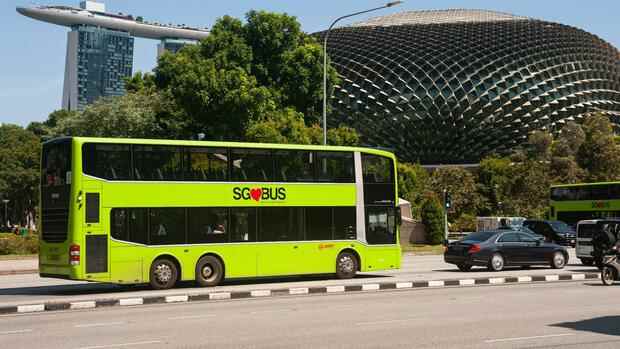Munich Gottfried Greschner can still remember July 24th 2001 very well. The New Economy with its Neuer Markt stock exchange segment was already noticeably in decline. Candidates on the stock exchange had the choice between making clear concessions on the issue price or rejecting them.
Greschner, founder and head of the Karlsruhe IT company Init, opted for the former and, contrary to the advice of the accompanying investment bankers, carried out the initial public offering. The issue price of at least 5.10 euros per share brought a good eight million euros in fresh capital to the company. And Init – the abbreviation stands for Innovation in Traffic – was the last company that made it onto the Neuer Markt. Almost two years later, the stock exchange segment for emerging technology companies was finally closed after a large number of scandals.
But Init still exists, and Gottfried Greschner, who is now 75, is still at the helm of the company. With the family holding more than 40 percent of the shares, he remains the largest shareholder.
“It’s still fun, even if there is the idea of switching to the supervisory board at some point,” says Greschner. Finding the right time for this is difficult, especially in times of great economic success.
Top jobs of the day
Find the best jobs now and
be notified by email.
Local public transport, for which Inits digitization systems create timetables, vehicle deployment and ticketing systems worldwide, is booming. The challenges of digitization and ecological reconstruction mean that major changes are pending everywhere. Around 1100 customers worldwide with more than 160,000 vehicles are looking for solutions to this.
Init’s share price has tripled since the pandemic started. Analysts like Robert-Jan van der Horst from Warburg Research have therefore recently lowered expectations. In view of the strong price development, he now only advises holding the share.
Spin-off from the University of Karlsruhe
That was not to be expected when it was founded in 1983. Gottfried Greschner founded the company as a spin-off from the university. “Demand-driven bus transport in Karlsruhe” was the subject of a research project that was then further developed in business practice. In the meantime, the requirements have changed significantly.
While 20 years ago it was still considered an innovation when the closely-timed London double-decker buses kept their distance in dense city traffic using init systems and did not run into each other in traffic jams, today tickets are bought via smartphone and the vehicles are also up to can be called up in detail at the control center.
The next huge challenge is already ahead. If more and more electric buses will shape the cityscape in the next few years, the operators will have to coordinate the currently short ranges and long charging times for the availability of the vehicles. A control system from Init should then monitor the state of charge.
“It’s a huge field of activity,” says Gottfried Greschner, looking ahead. After all, in large cities it is a question of fleets between a hundred and a thousand buses, the charge status of which has to be coordinated. Regardless of whether the battery is charged at the depot or in a 20-minute break at the terminus.
The Lithuanian start-up Dancerbus, for example, has developed such a system. Because the public funding is now flowing abundantly due to the political pressure for the ecological restructuring of the mobility systems, the demand everywhere in the industry is enormous.
Future in regional rail traffic
At Init there have long been ideas on how the business field can be expanded further. “We want to get more involved in rail traffic,” says Gottfried Greschner.
Trams, underground trains and buses are to be coordinated more closely so that all regional traffic is better coordinated for customers. They are currently still desperate because of the overly complicated ticket systems of the individual operators. For example, there are more than a hundred private railways in the country that, from the customer’s point of view, could be networked much better with one another. According to Greschner, this should happen as quickly as possible.
It has not yet been decided who will eventually succeed him at the head of Init. For example, Gottfried Greschner’s brother Jürgen Greschner, who has been his deputy so far, is an option. But also the two self-made members of the board, CFO Jennifer Bodenseh and the technical director Matthias Kühn, are ready to initiate the generation change.
More: Billions in mobility data: German carmakers defend future business.
